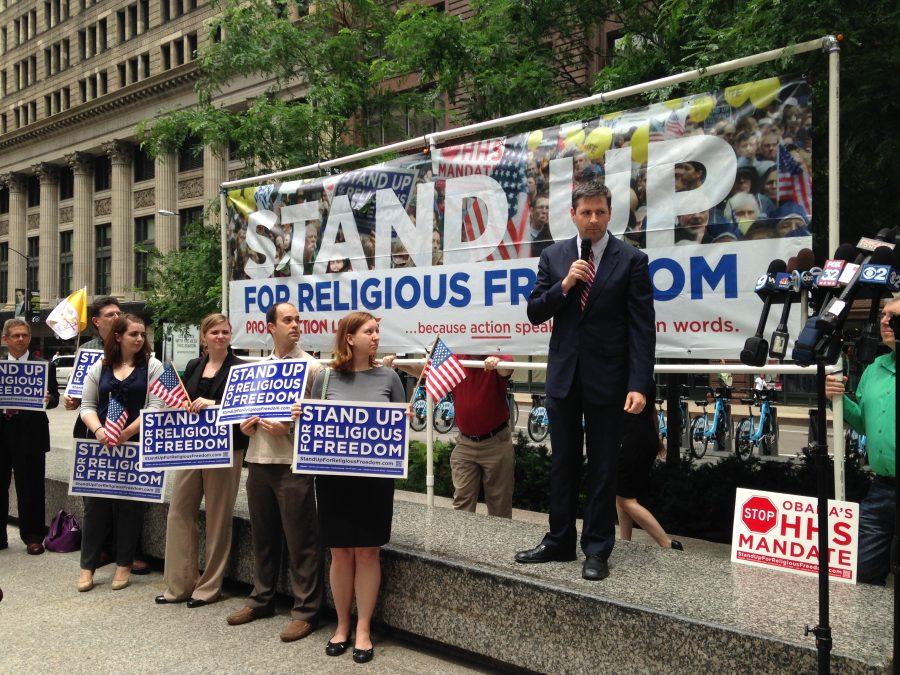Last month there had been a lot of hoopla about Indiana’s new Religious Freedom Act. Most of the controversy was generated by gay rights groups and their supporters who alleged that the law would allow businesses to discriminate against homosexuals. Opponents pointed to the clause in the law, which states “that the state can’t substantially burden a person’s exercise of religion, unless there is a compelling governmental interest at stake and it is pursued by the least restrictive means” according to the National Review. The BBC writes that to put down the outcry Governor Mike Pence had the Indiana legislature add an amendment that “prohibits businesses from using the law as a legal defense if they refuse to provide services to gays and lesbians, or other groups.” This, according to the Governor, brought the Act inline with the 1993 Religious Freedom Restoration Act passed by Congress and signed into law by President Clinton.
Although I applaud Governor Pence for bringing the state law in line with federal legislation already on the books I have to side with Rich Lowry of the National Review who writes that the law was fine as it originally stood. In an article for the magazine defending the original text of the Act Lowry writes that it would not result in discrimination against gays and lesbians because the “law doesn’t mandate any particular outcome; it simply provides a test for the courts in those rare instances when a person’s exercise of religion clashes with a law.” There was nothing in the language of the original law that allowed businesses to discriminate against homosexuals. The act simply requires that the government prove that it has a strong enough compelling interest to interfere in a person’s religious practices. It does not endorse discrimination against gays nor encourages it.
And yet we have silly spectacles like shop-owners in Indianapolis putting up placards saying “We serve everyone” and politicians like Connecticut Governor Daniel Malloy openly criticizing Governor Pence. Perhaps Malloy should be more attentive to his own state’s faltering economy then waste his time commenting about the politics of other states. Those two displays, the former unnecessary and silly and the latter shameful, show that the gay rights movement has to stop viewing government attempts at safe-guarding religious liberty as a direct threat to them. Indiana’s legislature simply clarified requirements the government needs to meet if it is to infringe on a person’s religious liberty. One of our nations most sacred rights.
Of course as I said previously I have nothing against the amendments the Indiana legislature passed. I just find them unnecessary. However, now that the language of the act is more in line with the original 1993 RFRA, that was passed with bipartisan support, all the complaints should die down. Meanwhile, the gay rights activists should just relax and wait for the Supreme Court to decide if homosexuals do have a right to marry under the Constitution. Despite the fact that neither the Constitution nor the Bill of Rights even mention marriage as being a right.












































































































